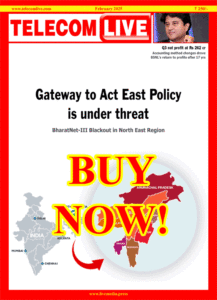M&E stakeholders urge TRAI to exclude OTT, online gaming and music from Broadcasting policy
As Telecom Regulatory Authority of India (TRAI) nears the finalisation of the National Broadcast Policy (by the May-end), stakeholders from media and entertainment industry have urged the TRAI to confine its recommendations on the National Broadcasting Policy (NBP) solely to matters within the broadcasting sector. As per a media report, the stakeholders are advocating for the exclusion of non-broadcasting concerns such as OTT, online gaming, film, and music, citing that these areas fall outside TRAI’s jurisdiction.
The proposed NBP has been sparking debate among stakeholders for a while now. While the policy focuses on growth of the broadcasting sector, other stakeholders have raised concerns about several recommendations including convergence, piracy and the inclusion of OTT services.
During a recently held open house, Broadband India Forum’s Debashish Bhattacharya advocated for the broadcasting policy restricting its coverage to the broadcasting sector and exclude the OTT services from its scope. “The OTT services are not in part of the broadcasting ecosystem since they are functionally distinct from television and radio broadcasting that involves a combination of carriage and content,” he said. He also shared his perspective on the argument that television is a push based medium and consumers view content at the time and schedule decided by the broadcaster while OTT is a pull medium where consumers decide on factors like time and content.
In April, TRAI had asked for comments from stakeholders and released a consultation paper on its website, seeking inputs for the formulation of the NBP 2024— which aims to make India a global content hub.
Last July the Ministry of Information and Broadcasting had asked TRAI to provide its considered inputs for the NBF. As a first step, TRAI issued a pre-consultation paper in September to determine the issues to be considered when formulating the policy. It then examined the issues highlighted in written submissions and meetings, and studied various media and industry reports, public documents, international practices and government initiatives before releasing the consultation paper.


